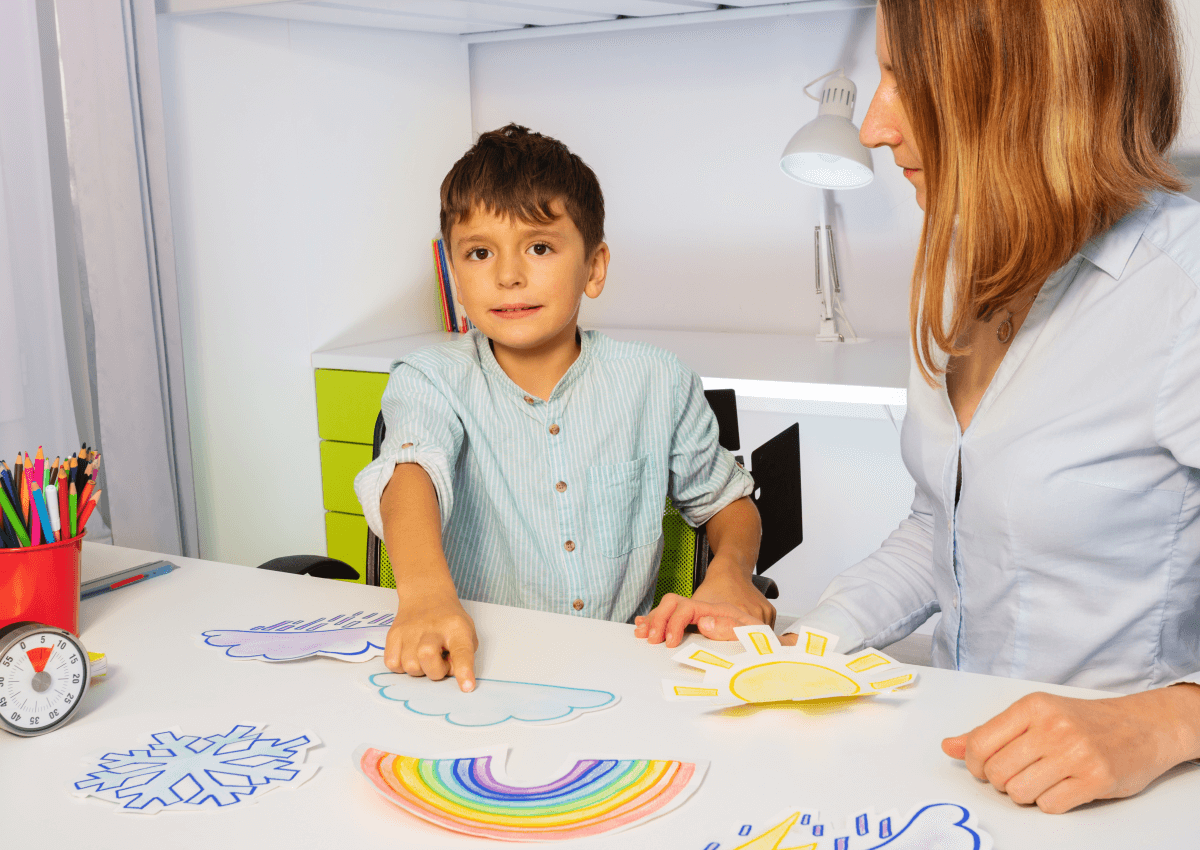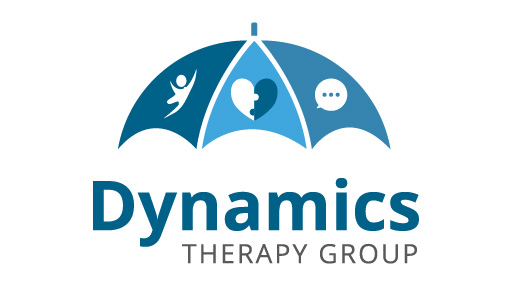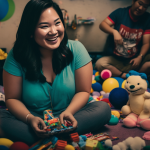
Children with developmental delays or challenges and/or behavioural issues find themselves falling behind their peers in certain developmental or behavioural milestones. Their deficits in skills can lead to a host of problems and concerns, such as low self-esteem, increased stress on parents and children, disrupted daily living and a poor quality of life.
These children, and their parents, need a helping hand out of these challenges — and most have found their answer in ABA.
What is ABA and Why Is It Effective?
Applied Behaviour Analysis (ABA) has given countless children, including adults, a new lease of life since 1968. Founded by psychologist and professor, Ole Ivar Lovaas, ABA has evolved into an intervention method that has been proven highly effective in bridging gaps and fostering adaptive and independent living.
ABA is intensive therapy, which uses appropriate evidence-based strategies and procedures that target gaps or deficits to meet the needs and goals unique to the child. An ABA programme includes an initial consult, in-depth assessments of the child, therapy sessions and reviews.
What Skills Can Your Child Acquire Through ABA Therapy?
ABA leverages the principles of learning and motivation to increase positive behaviours, teach new skills and maintain existing good ones, reduce detrimental behaviours and teach replacement skills/behaviours, and generalise learning across environments, situations and/or people.
The efficacy of ABA therapy has enabled children to develop and improve various essential skills, such as:
Basic learner skills:
- On-seat behaviour
- Attending and scanning skills
- Building eye contact
- Responding to own name
- Following simple instructions
Communication and language skills:
- Spontaneous requesting
- Understanding language (receptive language)
- Using language (expressive language and functional use of language)
- Building vocabulary
- Answering questions
Social and play skills:
- Engaging meaningfully with toys
- Building independent leisure/play skills
- Pretend play
- Understanding social cues and rules
- Participating in interactive play with others and in group activities
- Turn-taking skills
- Initiating interactions
- Socialising with peers
Daily living/self-help skills:
- Toileting
- Dressing, e.g. wearing clothes/shoes
- Feeding, e.g. drinking from a cup or using a spoon/fork
- Packing/Unpacking
- Making simple meals
- Grooming, e.g. washing, bathing, tooth brushing or combing
- Tolerating new/aversive activities, e.g. nail cutting
- Self-regulatory behaviour
Academic skills:
- Reading
- Writing
- Math
- Spelling
Motor skills:
- Gross motor skills, e.g. walking, climbing, jumping, balancing or throwing a ball
- Fine motor skills, e.g. appropriate grips, pencil skills, colouring or cutting with scissors
Reducing problem behaviours, such as:
- Lack of compliance
- Disruptive behaviours, e.g. throwing things
- Aggression towards others
- Self-injurious behaviour
- Tantrums
- Rigidity
- Self-stimulatory behaviour
What Factors Enhance the Effectiveness of Your Child’s ABA Programme?
Whether you are about to enrol your child in an ABA programme or are already in one, it is good to be aware of the different contributing factors that can increase the effectiveness of your child’s programme so that you leverage and reinforce these factors.
The ultimate goal of ABA is to help every child develop the required functional skills and independence to the point where the programme is no longer needed. To achieve this end goal, the effectiveness of the programme can be further enhanced through:
Early Intervention
Science has shown that young children learn faster and better, with lasting effects on their development, as children’s brains have more neuroplasticity as compared to adults. Neuroplasticity refers to the brain’s ability to adapt and master new skills as well as store new information and memories.
As such, it is highly recommended that children as young as 2 years old start their ABA therapy, or as soon as they have been diagnosed with any developmental delay and/or behavioural issue.
The outcomes may differ among children due to varying needs, skill levels and strengths, but early intervention has been proven to greatly benefit all children. The sooner the child starts therapy, the better the child’s progress and the more significant their improvements.
Individualised Programme
There is no cookie-cutter plan. Every child has unique strengths, needs and learning pace. A personalised programme with appropriate goals will help rectify specific issues/gaps and better meet needs and achieve desired outcomes. The ABA practitioner will conduct in-depth assessments of the child before formulating and implementing an individualised programme.
Regular Data Collection and Appropriate Actions
Data is critical to effective therapy. Without proper review, feedback or monitoring, it is not clear how far the child is progressing.
Your ABA practitioner should take a data-driven approach to measure the child’s progress against the goals by putting in place systematic and regular evaluations to collect data. Accurate and up-to-date data are key to developing appropriate and timely follow-up actions, such as adjusting the programme and/or goals for greater effectiveness.
Parental Involvement
A child’s programme requires the support and contribution of all stakeholders, especially the child’s parents or primary caregiver.
Parents/Caregivers play an important role at every stage of the child’s therapy — from providing the ABA practitioner with relevant essential information about the child to discussing the child’s programme’s goals to deciding on the next best course of action for their child.
It is also critical to ensure continuity of the therapy outside of the sessions. And this is where parents/caregivers can step in to help reinforce what the child has learned during the sessions. This also provides the opportunity to help the child generalise or transfer desired skills and behaviours at home.
The ABA practitioner understands the importance of a partnership with parents/caregivers and will ensure that there is open and accessible communication with the parents/caregivers to obtain feedback and provide updates, along with adequate training and resources to support parental involvement in the programme.
Positive Learning Experience
Children are found to learn best in a safe and stress-free environment with plenty of opportunities to play and explore. Creating and encouraging a positive and fun learning experience can help increase the effectiveness of the child’s programme as they are more likely to learn faster and better when they enjoy themselves and are surrounded by supportive adults.
ABA Practitioner’s Expertise and Experience
The programme must be supported by a team of highly competent ABA practitioners. The lack of training and experience could lead to incorrect implementation of the programme and improper management of the children and their parents.
A Board Certified Behavior Analyst (BCBA) is one who meets both the education and training requirements established by the Behavior Analysis Certification Board. They are qualified in conducting assessments, accurately interpreting the results to understand the child, designing a plan that is suitable and effective with rightly identified goals, and overseeing the programme efficiently. The BCBA also engages the parents and provides them with timely updates, expert advice and appropriate recommendations, along with relevant training and resources.
The ABA therapists are trained and experienced in carrying out intensive, one-on-one therapy sessions with children. They are the best at understanding the child, encouraging participation and learning, and using appropriate techniques to help the child achieve their goals successfully.
In addition to the specialised knowledge and expertise of the ABA practitioners, their empathy, inclusiveness, love for children and passion for helping them are also positive indicators of their commitment to the child and the programme.
Practitioners who strive to stay up-to-date on the latest developments, skills and technologies of their field have the advantage of knowledge to improve the current programme if needed.
Holistic Support and Care
Holistic treatment and support greatly contribute to the efficacy of the child’s therapy. A child’s current challenges could be linked to causes or conditions that may require other forms of specialised care. To ensure that the child is equipped in all areas of adaptive living skills, the ABA practitioner should work seamlessly with other healthcare professionals, such as Occupational Therapists, Speech and Language Therapists, Physiotherapists, Educational Therapists, Counsellors, and more.
We have to remember that adapting to changes and transitions is not a walk in the park, even for children. Behind each successful therapy, there is a tremendous amount of time, understanding, patience and effort from all parties involved. Your child’s therapeutic intervention can be time-consuming and at times difficult — but at the end of the day, it is a necessary process and its benefits are rewarding.
How Can Dynamics ABA Help?
At Dynamics ABA, our passionate ABA professionals are highly qualified with extensive experience in their field. They have treated children and adults from different countries and have been trained and worked with some of the best in ABA. Our team uses only the best evidence- and research-based intervention strategies and programmes that are data-driven (ongoing evaluations), and actively partners with parents and caregivers to ensure that every child enjoys a positive learning experience and achieves their goals.
To provide holistic care and support, we collaborate with other highly competent professionals, who are also part of Dynamics’ multidisciplinary team. Unique to Dynamics, we offer wide-ranging specialised therapeutic and educational services under one roof, such as Occupational Therapy, Speech Therapy, Physiotherapy, Counselling, Early Intervention Programmes, and others.




